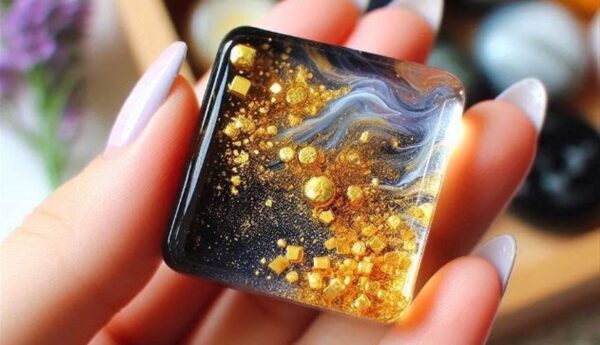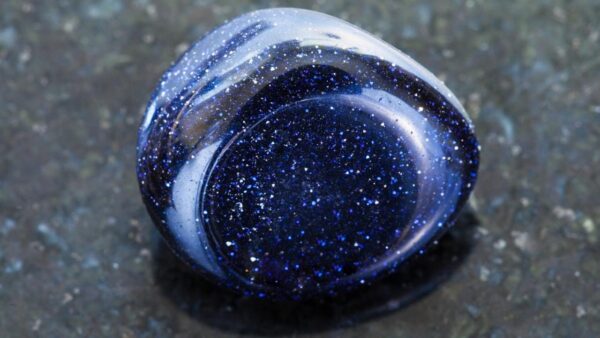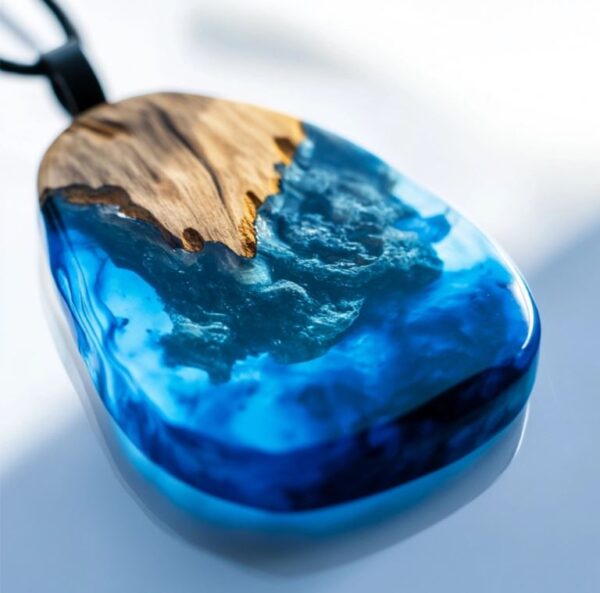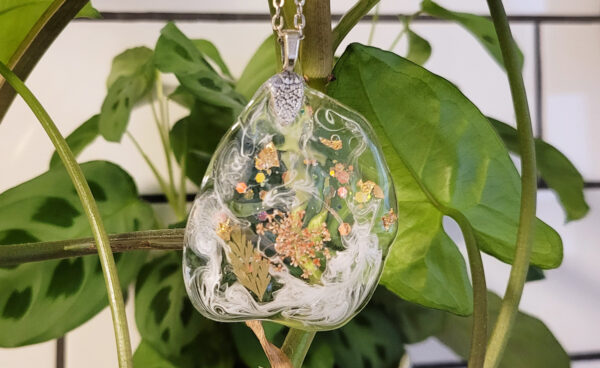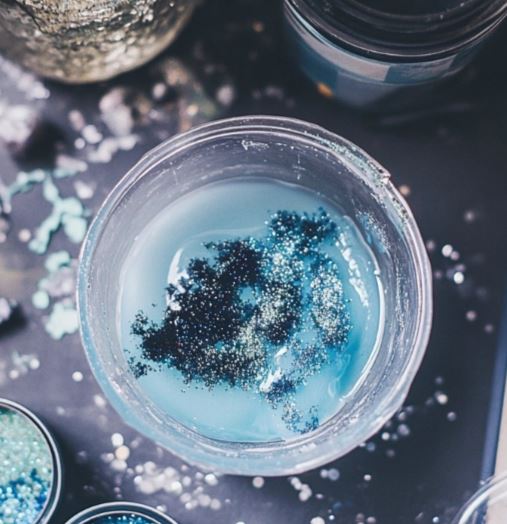12 Common TYPES OF RESIN & Their Uses
Welcome to a guide of various types of resin. Resin is a versatile material used for crafting, coatings, and various industrial applications.
In simple terms, resin is a sticky substance that solidifies into a clear and durable finish. There are several types of resin, each with unique characteristics and applications. For more information you can head on over to our complete resin guide to learn more.
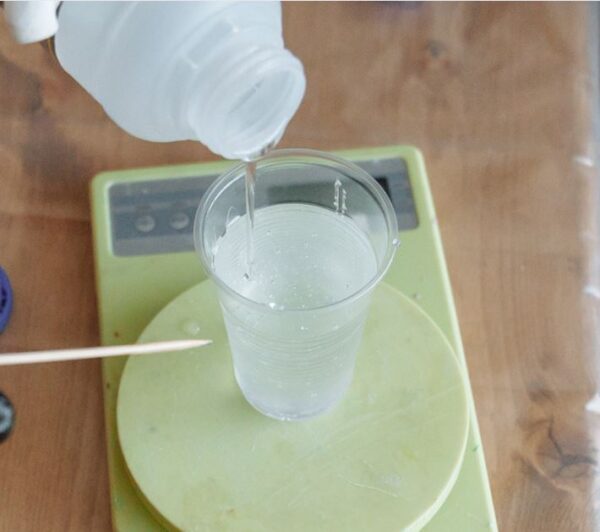
Whether you’re into DIY projects, art, or just curious about the materials around you, this list will provide a plain-English overview of the different types of resin commonly found in the market.
What is resin?
Resin is a viscous and semi-solid substance derived from plants or synthesized chemically. Natural resins are often exuded by trees, such as pine or fir, while synthetic resins are manufactured through chemical processes.
It serves various purposes, such as being a vital component in the production of adhesives, varnishes, and coatings due to its adhesive and protective qualities.
Additionally, resin is commonly used in the crafting of jewelry, sculptures, and other artistic creations.
The versatility of resin makes it a valuable material in both industrial applications and creative endeavors, offering a wide range of possibilities for construction, art, and manufacturing.
The Different Types of resin
1. Epoxy Resin
Epoxy resin is a type of synthetic polymer that transforms from a liquid to a solid state through a chemical reaction. It consists of a two-part system—a resin and a hardener—that, when mixed together, undergoes a chemical reaction resulting in a durable, clear, and often glossy surface.
Composed of epoxy monomers and a hardening agent, epoxy resin is renowned for its remarkable adhesive and bonding properties, as well as its resistance to chemicals, heat, and electrical conductivity.
Widely used in construction, woodworking, crafting and countertops, epoxies form a durable and high-strength material when cured.
Its versatility extends to crafting, where it is frequently employed for creating glossy and protective finishes on surfaces, as well as in the production of art, jewelry, and other creative projects.
The ability of epoxy resin to bond strongly with a variety of materials makes it a popular choice for bonding, coating, and encapsulating diverse surfaces, offering both strength and aesthetic appeal.
Epoxies are a versatile and widely-used material known for its exceptional adhesive properties and high-gloss finish.

Epoxy resin is commonly employed in a range of applications, including art projects, woodworking, and as a protective coating for surfaces due to its strong bonding capabilities.
It’s one of the most popular resins for crafts, DIY coasters and home décor items like river tables. This type of resin will easily pour onto dried flower resin crafts.
2. Casting Resin
Casting resin is a specialized type of epoxy resin formulated for casting and embedding objects.
It is often clear and can be used to create intricate and decorative pieces, such as jewelry, paperweights, and encapsulated designs.

Casting resin is designed to cure crystal clear but may still require a pressure chamber to remove bubbles for certain projects. This gives the user a crystal-clear result suitable for a wide range of artistic and DIY projects.
3. UV Resin
UV resin, short for ultraviolet resin, is a type of liquid resin that cures and hardens rapidly when exposed to ultraviolet (UV) light. This curing process is initiated by the UV light, and it eliminates the need for a time-consuming chemical reaction.
UV resin is commonly used in crafting, jewelry making, flower casting, and small-scale DIY projects due to its quick curing time, clarity, and the ability to capture fine details. See our guide on the best UV resins for beginners.
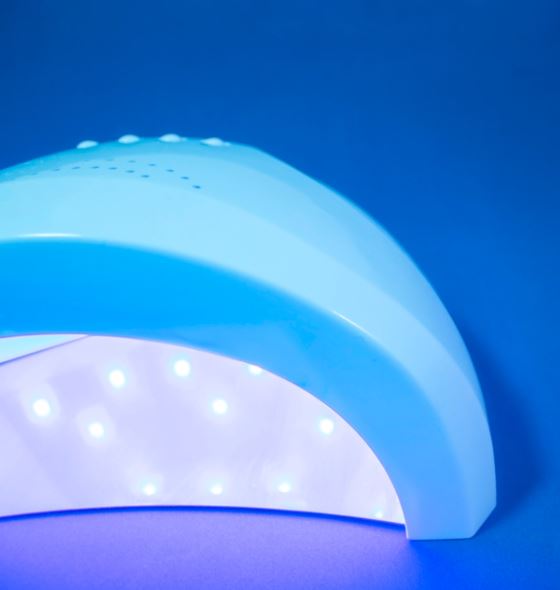
It is often employed for creating clear coatings, encapsulating objects, and forming intricate resin jewelry. The convenience of UV resin makes it a popular choice for those seeking efficient and precise results in their creative endeavors.
We have a helpful guide on the best UV lights for using UV resin. And if you are just getting started, here is our UV resin guide for beginners.
4. Polyester Resin
Polyester resin is a cost-effective and widely-used synthetic resin. It is commonly utilized in combination with fiberglass to create strong and lightweight composite materials.
This type of resin is frequently employed in boat building, automotive applications, and for crafting small objects.
Polyester resin cures through a chemical reaction initiated by a catalyst, forming a solid and durable final product.
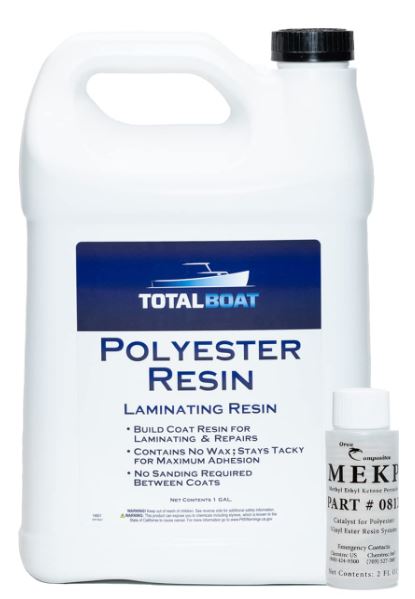
5. Polyurethane Resin
Polyurethane resin is valued for its flexibility, durability, and resistance to abrasion. It is commonly used in mold-making, casting, and as a protective coating for a variety of surfaces.
Polyurethane resin can be formulated in different ways to achieve various properties, making it a versatile choice for applications where flexibility and toughness are essential
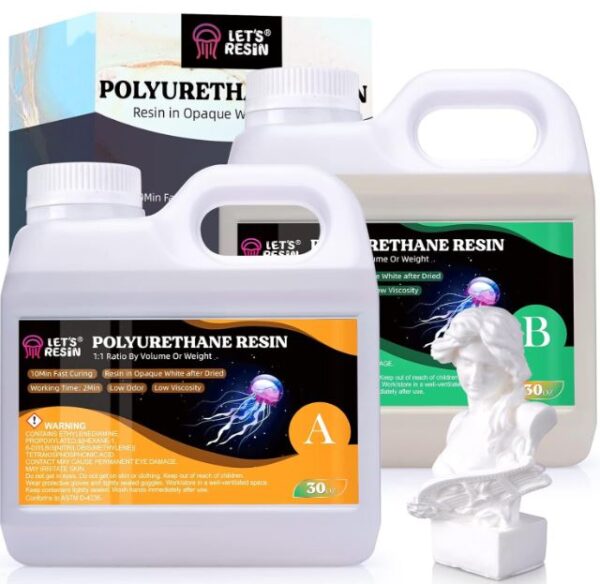
6. Vinyl Ester Resin
Combining characteristics of both epoxy and polyester resins, vinyl ester resin is known for its corrosion resistance.
It is commonly used in applications requiring resistance to harsh chemicals and environmental conditions, such as the construction of chemical storage tanks and corrosion-resistant structures.
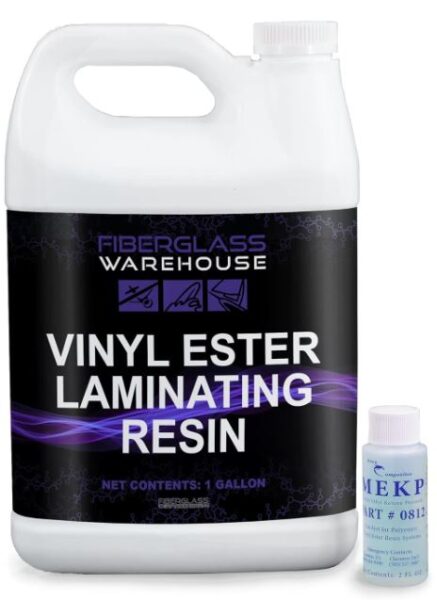
7. Acrylic Resin
Acrylic resin is a transparent thermoplastic known for its clarity and weather-resistant properties.
It is often used in artistic applications, such as painting and sculpture, due to its ability to maintain transparency even when thickly applied.
Acrylic resin is also employed as a protective coating for surfaces where a clear and durable finish is desired.
8. Alkyd Resin
Alkyd resin is commonly found in oil-based paints, providing a durable and glossy finish. It is favored for its quick drying time and is often used in artistic and industrial applications.
Alkyd resin can be modified to suit specific painting needs, making it a popular choice for artists and painters.
9. Phenolic Resin
Phenolic resin is recognized for its heat resistance and electrical insulation properties.
This type of resin finds applications in the manufacturing of circuit boards, electrical components, and certain types of adhesives.
Phenolic resin is appreciated for its ability to withstand high temperatures without compromising its structural integrity.
10. Silicone Resin
Silicone resin is known for its flexibility, heat resistance, and non-stick properties.
It is commonly used in mold-making for its ability to capture intricate details and release the casted objects easily.
Silicone resin is also employed in the production of kitchenware and bakeware due to its food-grade characteristics.
11. Polyethylene Resin
Polyethylene resin is a type of plastic known for its low cost, light weight, and chemical resistance.
It is widely used in the production of various plastic products, including containers, packaging materials, and toys.
Polyethylene resin is valued for its versatility and is available in different forms, such as high-density polyethylene (HDPE) and low-density polyethylene (LDPE).
12. Lac Resin
Lac resin, also known as shellac, is a natural resin secreted by the lac insect (Kerria lacca) found in Southeast Asia and India.
People harvest the resin from the lac insect’s secretions on host trees, primarily the lac tree. Once it’s collected, it is processed into shellac, a versatile and traditional material with various applications.
See our Lac Resin Guide
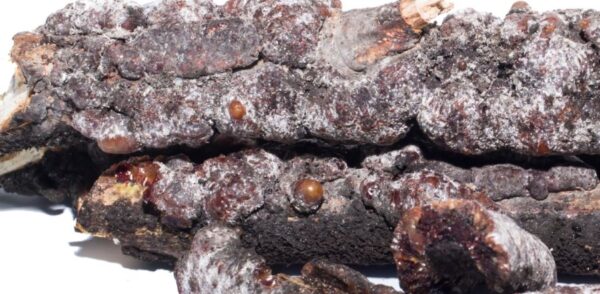
Shellac is often used as a natural finish and protective coating for wood, giving it a glossy and durable surface.
People use it for the manufacturing of traditional shellac-based varnishes, inks, and as a food-grade coating for certain candies.
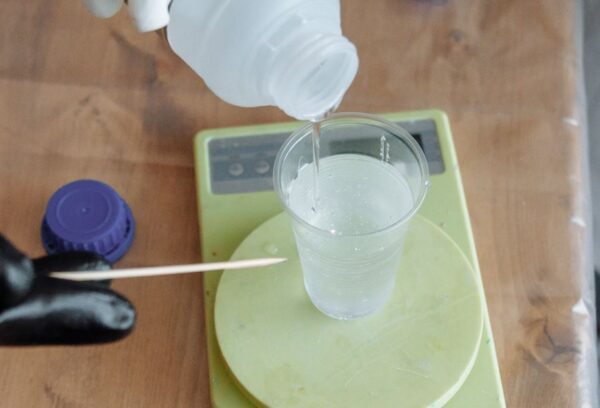
Is Resin The Same As Epoxy?
No, resin and epoxy are not the same, although epoxy is a type of resin. Resin is a broad term that refers to a viscous substance produced by plants or synthesized chemically, typically with a liquid consistency that hardens over time.
Epoxy, on the other hand, is a specific type of resin that results from the chemical reaction between an epoxy resin and a hardening agent.
Epoxy resins are known for their strong adhesive properties and durability. People use them in various applications such as coatings like making a flower resin table.

In closing: Thank you for taking the time to explore the diverse world of resins with us. We hope this overview has been informative and helpful in understanding the unique characteristics of each type.
Whether you’re an artist, DIY enthusiast, or someone simply curious about the materials around you, we appreciate your interest. If you have any further questions or topics you’d like us to cover, feel free to reach out. Thanks again for reading!
Always use resin safely. Read our guide of resin safety tips.


